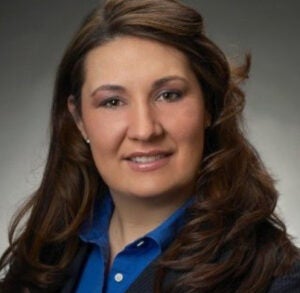Personalized advertising can be a time-consuming headache in specialized sectors, which often have strict legal and compliance requirements.
Different states may have different laws and required disclosures or regional variations in the rules that say which words can be used in ad copy.
In the auto sector, for example, dealer franchise laws prevent traditional automakers, such as General Motors, from selling electrical vehicles (EVs) directly to consumers, while DTC sales are fair game for EV startups like Tesla, Polestar and Lucid Motors.
Meanwhile, in pharma, product claim ads must at minimum include the drug’s name, an FDA-approved condition that it treats and its risks and benefits. Pharma ads that are not FDA compliant can result in billions of dollars in losses for the company.
Due to the complexities and regulatory wrinkles marketers in regulated industries must contend with, ad campaigns can take a long time to get out of the starting gate.
“It takes pharma four to eight months to launch anything digitally,” said Diana Lee, co-founder and CEO of mar tech company Constellation. “On auto, it’s taking close to 14 days from a franchise level and up to 60 days on an OEM [original equipment manufacturer] level.”
Constellation condenses this “inefficient” process, Lee said, so these complicated industries can launch assets quicker.
Keeping creative in compliance
The company’s bread and butter is Fortune 500 companies, including BMW, Porsche, Land Rover, Cadillac and Jaguar on the auto side and Sanofi, Alnylam Pharmaceuticals and Biohaven Pharmaceuticals (which Pfizer acquired in 2022) on the pharma side.
Constellation’s proprietary tech ingests a company’s brand and messaging guidelines in addition to laws and standards that ads must follow to stay compliant.
For instance, Constellation can populate an ad dynamically for auto clients with the year, make, model, trim and VIN number of a specific vehicle alongside a photo of a car and its advertised price. All the vehicle information, including the photo, must match what is being advertised.
The software takes a brand’s original content and creates hundreds of permutations for social media, websites, landing pages and email blasts. Constellation customizes its templates for each customer, mixing and matching widgets and modules depending on which regulation they’re struggling with.
Data and the human factor
Constellation’s tech uses marketing and sales data, social listening and script-level data (in the pharmaceutical space) “to tell a full story of whether [an asset] is going to convert or not,” Lee said.
But data alone isn’t enough without a business strategy to train the model, Lee cautioned. It’s a point she’s often had to make with the data scientists she’s worked with.
“The analogy is: I asked for a scoop of chocolate ice cream. You gave me a sundae with cherries, hot fudge, caramel and jimmies on top,” Lee said. “It was too much information. [You have to] understand what’s important and what isn’t important to clients and consumers.”
Industry knowledge is critical as well. For instance, Lee recalls when she was trying to match vehicle identification numbers (VINs) to vehicles to determine which cars had been sold. One of the data scientists laid out everything that was in stock with inventory from every dealer to produce a list of VINs for cars that had been sold versus not sold.
Sounds logical, but “the way that they were trying to measure this information was not an accurate depiction of what the real story was,” Lee said.
That’s because there are many reasons inventory may leave an automaker’s website. “It could be because there’s a dealer trade – you traded it to another franchise and they took it away,” Lee said. The automaker could also take a car off the lot because it’s a loaner vehicle or because it got into an accident while it was in inventory.
It takes experience to know how to interpret the data, and Lee has plenty of it. She’s worked in the automotive industry for more than 30 years in roles spanning automotive sales, finance, marketing, consulting and coaching. Early in her career, she worked at dealerships, including in her first job when she was still an undergraduate at Clark University in Worcester, Massachusetts. Right before founding Constellation, Lee was the global client services director at brand activation agency Xperience.
Lee’s extensive knowledge of the auto industry informs how Constellation builds and develops its tools. The company also ran a two-year pilot of its technology in the pharma sector to get hands-on experience with industry-specific issues and challenges.
From ad agency to tech company
Today, Constellation bills itself as a SaaS enterprise technology platform that focuses on creative automation, “closer to an SAP or even a Salesforce, where we have modules that you can add on,” Lee said.
But when it launched in 2016 as Constellation Agency, it had no plans to be a tech company. It was initially an ad agency that created its software for internal use after employees struggled with manually creating personalized and compliant assets for clients.
It was only as Constellation built more of its own widgets – and an increasing number of auto, pharma and banking companies signed up to license its tech – that the company realized it was on to something.
Constellation didn’t raise any external capital until six years after launch, when it hit $20 million in revenue. In December 2022, Constellation secured $15 million from private equity group Newlight Partners.
The company employs about 160 people and plans to “double again this year in revenue and in headcount,” Lee said. It’s also expanding its C-suite, with an offer recently sent to a CRO, and plans to hire a CFO and possibly a COO and CMO in the near future.
Last year, Constellation opened offices in Dubai and Canada in addition to its existing office in downtown Manhattan.
“To get the best data scientists and the best developers in the world, you have to think about a global recruiting plan,” Lee said. “We have our own in-house immigration attorney.”















